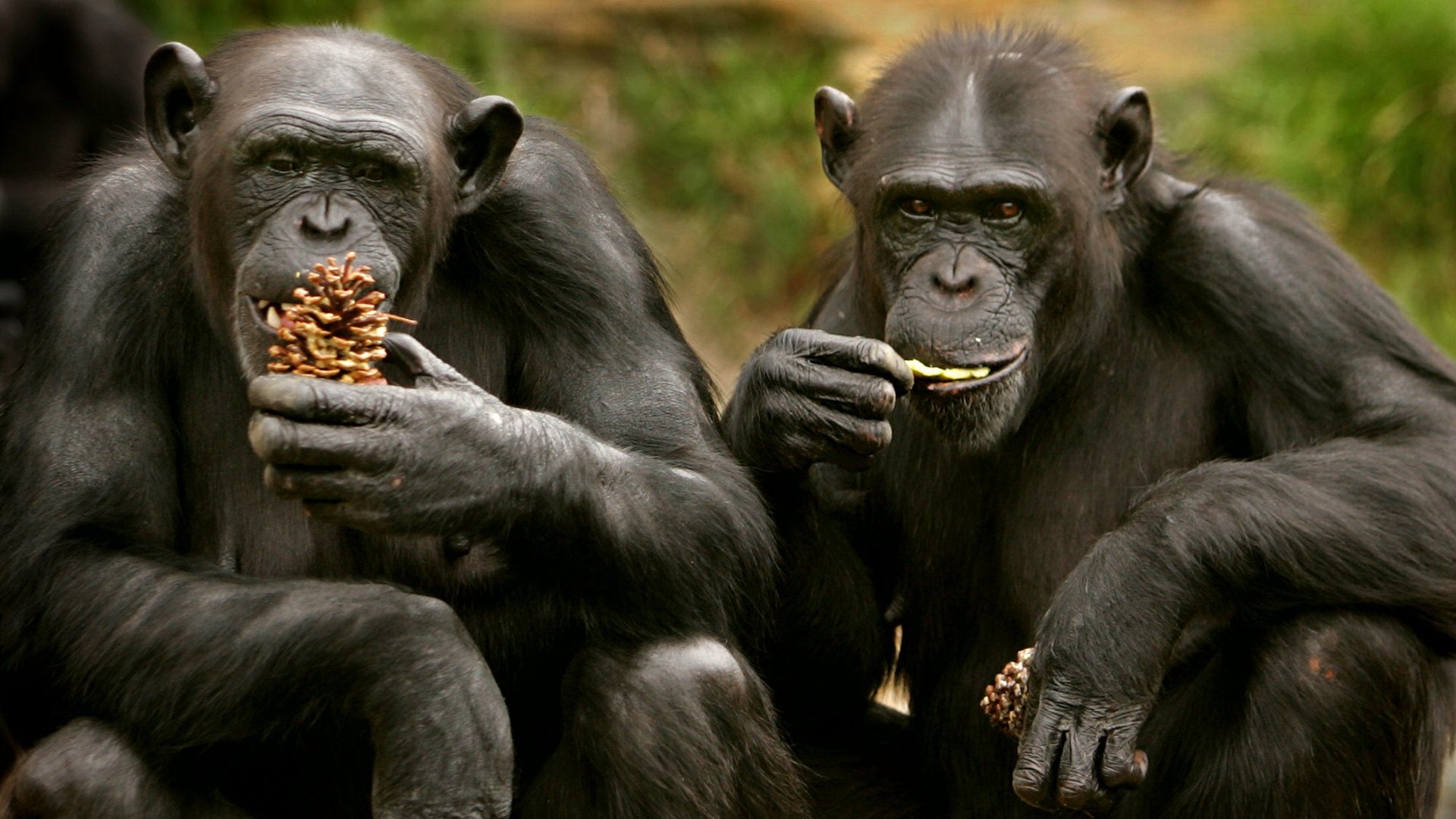Scientists ran the chimp vs. kid rock-paper-scissors experiment we didn’t know we needed
Countless playground disputes have been settled via rock-paper-scissors, also known as paper-scissors-stone or roshambo. Humans achieve the required cognitive capacity to learn and play the game around the age of 4. Mastering the deceptively simple rules (rock crushes scissors, scissors cut paper, paper covers rock) actually requires advanced problem-solving skills, like understanding non-linear relationships and transverse patterns.


Countless playground disputes have been settled via rock-paper-scissors, also known as paper-scissors-stone or roshambo. Humans achieve the required cognitive capacity to learn and play the game around the age of 4. Mastering the deceptively simple rules (rock crushes scissors, scissors cut paper, paper covers rock) actually requires advanced problem-solving skills, like understanding non-linear relationships and transverse patterns.
But what about chimpanzees, you may be asking? (Or, not.) Can you teach chimpanzees to play rock-paper-scissors, and will they be better at the game than a human preschooler?
Science is on it. A research team in Japan engineered exactly the chimp vs. kid rock-paper-scissors showdown we didn’t know we were waiting for.
The researchers recruited seven chimpanzees resident at Kyoto University’s Primate Research Institute, and 38 children aged 3- to 6-years-old from a preschool in Henan, China. Both groups were set up with touch screens that flashed pairs of their own species’ hands making the rock, paper, or scissors gestures.

When the apes touched the winning hand, they heard a chime and received a piece of apple. When the children touched the correct hand, they heard a chime and saw a cheerful photo of baby chimpanzees on their screen. (All human participants were also compensated with cartoon stickers, regardless of performance.)
The researchers detailed the results in a paper recently published in the journal Primates. Five chimpanzees successfully learned the game of rock-paper-scissors. The last two, Cleo and Pan, couldn’t quite grasp it. Thirty-four of the children completed the study, though four decided they’d had enough of the game and dropped out midway through.
The apes were eventually able to reach a proficiency level equivalent to that of a typical 4-year-old. But the young humans learned far faster than the chimpanzees. It took each child just less than six rounds, on average, to understand the rules of the game, compared to an average 307 sessions each for successful chimps.